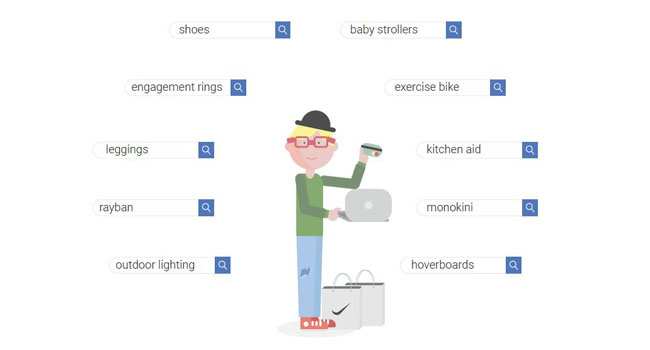Top Ecommerce Search Ranking Factors

by Amberly Dressler
17 Mar, 2017
What does it take for an ecommerce site to rank on the first page of the search engine result pages (SERPs)?
Searchmetrics - with its historical database spanning nine years and more than 250 billion pieces of information - created an industry-specific (ecommerce) keyword set to find out. The following visual from Searchmetrics shows a few examples of the keywords used for the analysis in its whitepaper.

So, what did Searchmetrics discover? A quick rundown is provided below (but more context is found at Searchmetrics):

Searchmetrics - with its historical database spanning nine years and more than 250 billion pieces of information - created an industry-specific (ecommerce) keyword set to find out. The following visual from Searchmetrics shows a few examples of the keywords used for the analysis in its whitepaper.

So, what did Searchmetrics discover? A quick rundown is provided below (but more context is found at Searchmetrics):
- Just three percent of the top 10 ecommerce pages make use of AdSense or Adlinks.
- Ecommerce websites amongst the top 20 search results have less than a third as many social signals as the overall average.
- The file size of ecommerce pages in the top 10 is more than 30 percent larger than the average file size across all sectors.
- The number of interactive elements on high-ranking ecommerce websites is almost 40 percent higher than in our benchmark analysis.
- Across the top 10 Google positions, ecommerce pages have, on average, 70 percent more bullets per list than the overall benchmark.
- In ecommerce, URLs on the first page of the Google search results have 70 percent more internal links than the overall benchmark.
- Across the top 20 of Google's search results, well over half of ecommerce pages have an online store above the fold. This is more than double the overall average.
- Ecommerce pages in the top 10 almost all (99.9 percent) have the TLD .com.
- Video plays a less significant role in ecommerce than for websites in general. Only 35 percent of ecommerce pages in the top 10 have embedded videos.
- The word count for ecommerce URLs in the top 10 is around 25 percent higher than the overall aver­age.


Amberly Dressler
Head of analyst relations, public relations, customer advocacy (People Heroes), customer community, content marketing (full funnel/lifecycle), content operations and optimization, reputation management and social media. Leads a team of nine superstars to exceed our goals multi-fold.








